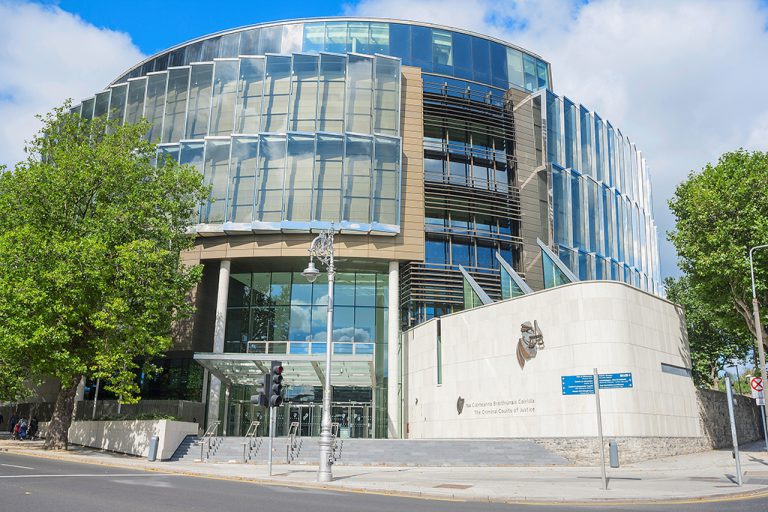Trial of man accused of dangerous driving causing death reaches closing stages
Padraig Conlon 22 Nov 2023
By Sonya McLean & David O’Sullivan
The trial of a man accused of causing a fatal car accident on a Dublin motorway four years ago has reached its closing stages.
Gerry Daly (57) Derby Lodge, Brownstown, The Curragh, Kildare, has pleaded not guilty at Dublin Circuit Criminal Court to dangerous driving causing the death of Jacqueline Griffin (39) at junction five of the M50 on January 24, 2019.
Roderick O’Hanlon SC, defending, said in his closing speech yesterday that Mr Daly was not in a position to control the decision to drive at the time of the “appalling and tragic accident”.
The court has heard that Ms Griffin died of catastrophic head injuries after her car was forced into crash barriers.
She was killed instantly.
Mr O’Hanlon said that due to Mr Daly’s diabetes and extremely low blood sugar levels at the time of the accident, his brain function and ability to process what was happening in front of him had diminished.
He said Mr Daly was driving in “an autonomous condition” and that “he was unaware where he was or exactly what had happened”. He told the jury Mr Daly’s blood glucose levels were low which impacted “the ability of a person’s brain to function.”
Garnet Orange SC, prosecuting, said the defence of automatism would not be suitable given the circumstances of this case.
He explained that the defence requires a “complete loss of control” and said that you can’t avoid criminal responsibility when you have “failed to do something that may have avoided the danger to somebody else.”
Mr Orange said Mr Daly had suffered from diabetes most of his adult life and that “he knew how to deal with it, he knew how to monitor it.”
He said Mr Daly failed “to take simple precautions that he knew about to avoid the risk”.
He urged the jury to be objective and impartial when deliberating and said the decision they would make while deliberating “is one of the most important decisions you’re going to have to make in your life.”
The trial continues before Judge Elma Sheahan and a jury.
Mr Orange previously read from the report of a doctor who arrived at the scene about two hours after the accident and saw that a vehicle was on its side on the road.
The doctor said he saw a decapitated head on the road and saw the body of a person in the back of the vehicle.
A post-mortem report was also read into the record by Mr Orange during which it was noted that Ms Griffin had died of “catastrophic head injuries after her vehicle was struck from the rear by another vehicle travelling at speed”.
The jury was shown CCTV footage from various cameras on the M50 and footage recorded from cameras on a recycling truck that was on the M50 on the day.
A number of motorists gave evidence of what they noticed that day while they were driving along the M50. They described a dark-coloured car driving at speed.
One witness said he assumed the driver was a garda or being chased by a garda, another estimated that the vehicle was travelling in excess of 150 km/hr, while a third witness said “the speed was crazy, really excessive”.
Motorists saw this vehicle glance off an articulated truck before it struck the back of the vehicle Ms Griffin was driving.
A taxi-driver told jurors that Ms Griffin’s car was forced it into a barrier, which caused it to flip before the speeding vehicle continued driving on.
On Monday, Dr Kevin Moore, consultant endocrinologist told the jury that in his view Mr Daly didn’t make a “conscious decision” to get into the car and drive that day.
He said that he has been supervising Mr Daly for “over 10 years” and Mr Daly attended as a patient with type 1 diabetes.
Dr Moore was taken through a graph of Mr Daly’s blood sugar readings on the day of the accident.
He expressed the view that these were consistent with Mr Daly having gone into a lower level of glucose which can “impair cognitive function” and it was his view that Mr Daly was in a severe hypoglycaemic state.
He said the defendant would have been “confused” and “disorientated” which reflected a “severe cognitive impairment” because there was “not enough glucose” in the brain.
He said it is his opinion that Mr Daly’s judgement was impaired and he “didn’t make a conscious decision to get into the car and drive”.
When asked about Mr Daly’s driving, the crash and its aftermath, Dr Moore said: “It is my opinion that his brain was barely able to function at that point and had been struggling for the duration of the car journey.
“In reality, he was on the edge of going unconscious or having a seizure.”
He said Mr Daly would have been able to function on “autopilot” and able to carry out basic functions such as driving or walking “just about – badly, erratically and unsafely”.











